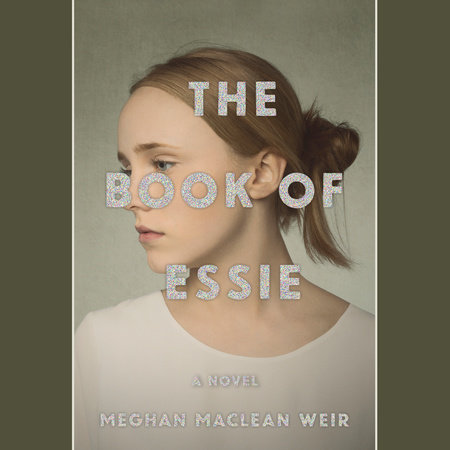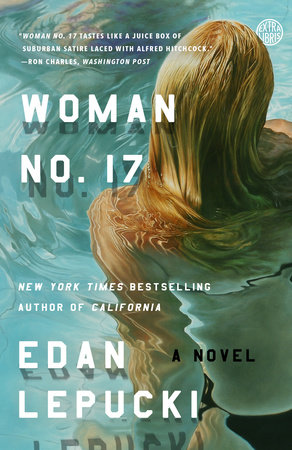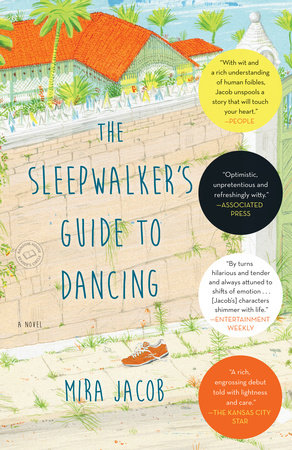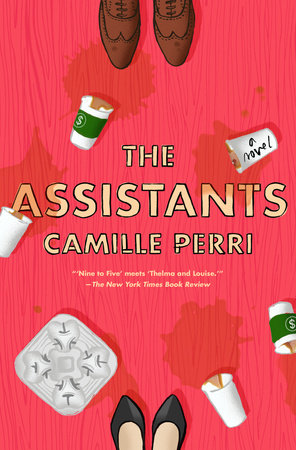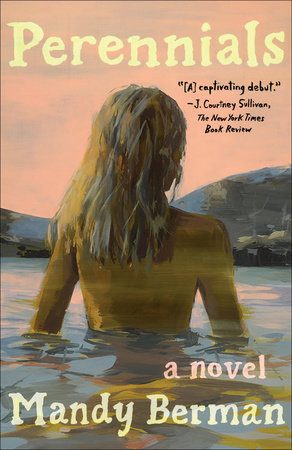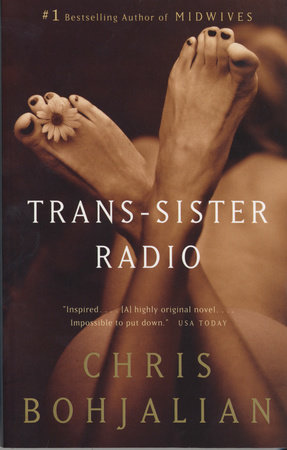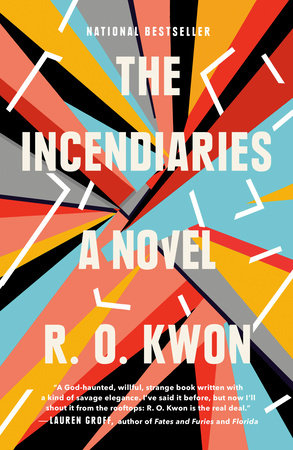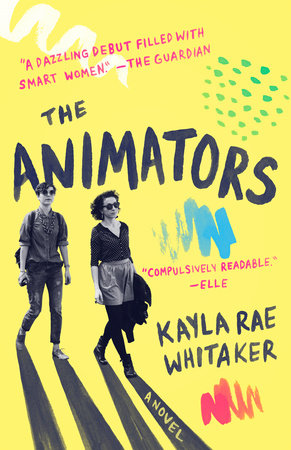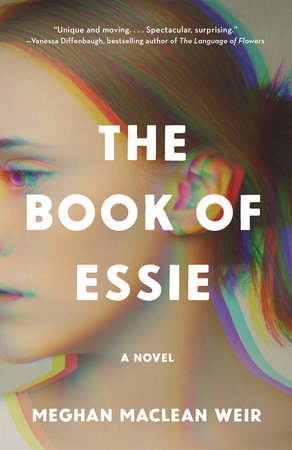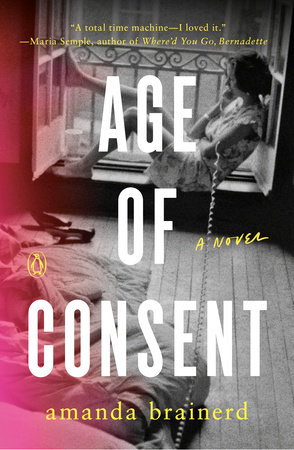Author Q&A
A conversation with
MEGHAN MACLEAN WEIR
author of
THE BOOK OF ESSIE
Q: What was the inspiration behind The Book of Essie?
A: The idea for the novel started with the scene where Essie (who we already know is pregnant) asks a reporter for help, though Liberty doesn’t entirely understand what Essie is saying at the time. I loved the idea of a character who has grown up on television, but who can only be honest when the cameras are not rolling. I wanted to explore how tangled up notions of celebrity and authority have become with each other, and how dangerous it can be to confuse one with the other. It used to be that famous people got away with morally reprehensible behavior because they knew powerful people who could help erase their misdeeds. Now, more and more, it seems that fame and power have become the same thing.
I wrote the book at a time when my parents were living with my husband and me to help take care of our kids, so I was revisiting and renegotiating my own role as a daughter in the context of now being an adult. It seemed natural that Essie’s father would be, like my own father, a member of the clergy, immersed in his calling in a way that sometimes made him aloof. Similarly, I knew right away that Celia, Essie’s mother, should be everything my own mother was not, but that the Church seemed to want her to be – the perfect hostess, the subservient wife, an extension of her husband, a tool to be used to further his goals. I hated that notion of womanhood as much as I hated seeing how guilty my mom felt that our house was never tidy or that she didn’t have time to have parishioners over for tea because she was working.
Finally, the decision that Essie should be pregnant grew from my own interest in women’s health and my frustration with the current warped worldview that seeks to limit young women’s access to medical care under the guise of morality. When I’ve had to tell teenagers they are pregnant in my role as a pediatrician, their responses fall into one of two categories: How could this happen? or What do I do now? I’ve always been impressed with the young women who ask the second question first, who skip right past denial and instead opt for planning and action, so that is what Essie does. She comes up with a scheme to leverage her own celebrity to achieve the autonomy she’s sorely lacking. In writing The Book of Essie, though, I wanted to acknowledge the importance of answering both questions. And, because Essie has grown up as America’s darling, the question of how and why she came to be pregnant, and what might have been done to prevent that pregnancy, is something her fans will have to personally ask themselves as well.
Q: Essie, the main character, has been on the hit reality TV show Six for Hicks since she was born. What was it like to put yourself in the mindset of someone who has grown up in the spotlight?
A: I grew up in a small town that, in many ways, was similar to Essie’s and where my dad was the priest of the local Episcopal church. Often, when I was walking to or from school or stopping at the spa to buy a slush, people would recognize me as Father Dan’s daughter, even if I was not with my parents. They would wave or smile, just trying to be friendly, but I was so incredibly shy at that age that even just that little bit of attention made me nervous. It gave me the impression that I was being watched.
Looking back, I realize that this was almost entirely in my own head, or that children growing up in small towns all feel that way to some extent. But there were certain expectations that did come with being a priest’s kid – behavior that was unacceptable and language I should never use, even if my father used it himself. It was important that I not embarrass the family, since it might diminish respect for my father or even jeopardize his job. I felt this even as a child. Even now, if I swear in front of people who have known me since I was young but who I haven’t spent much time with as an adult, I get a look of shock or amusement. To get inside Essie’s head – imagining what that lack of privacy must feel like, how the role you play in public could be so different from the person you were inside – I drew on these childhood experiences of my own and then made them infinitely worse.
Q: The book alternates between the perspective of Essie, her boyfriend Roarke Richards and reporter Liberty Bell. Why was it important for you to include these other two narrative perspectives?
A: This story, and the plots and schemes at the center of it, are first and foremost Essie’s, but they are plans she could not have enacted on her own. In choosing to help her, both Roarke and Liberty have their own lives changed in ways that are central, not peripheral, to their narratives. That’s why I decided that they needed to be given their own voices and, also, that all three voices should share the narrative equally. After all, by the end, this is as much Liberty or Roarke’s story as it is Essie’s.
It also allows the reader to look at Essie through someone else’s eyes, much as the viewers of Six for Hicks have done over the years. When Roarke or Liberty learn something about Essie that clashes with the girl she plays on TV, the reader gets to experience that dissonance, that doubt, as Roarke and Liberty force themselves to peel back the layers and reassess what is fiction and what is real.
Q: Religious hypocrisy comes up in the novel. Can you talk a little bit about why you chose to touch upon this?
A: When I was in middle school, my father lost his job. We had moved from Southbridge, MA to Buffalo, NY so he could take a position that, several years later, was eliminated. It was right before I was supposed to be confirmed and the Bishop who had been responsible for the decision, who essentially had fired him, was going to be there for the service. I refused to go through with the ceremony until my mother bribed me with a new dress. Then, when I knelt in front of the man who had made my father cry, I refused to look at him until he physically wrenched my head up so he could bless me. From that point on, I no longer looked at the Church or religion as being inherently good or moral. I began to question everything.
More recently, I’ve been deeply dismayed by the ways in which some of the conservative branches of Christianity are increasingly acting (and voting) in a manner that is decidedly unchristian, in ways that even seem wrong and immoral. There is something fundamentally wrong with fundamentalism when men are allowed to physically and sexually abuse women and it is the women who are blamed, especially when the “women” in question are often young enough to be my patients. Although the hypocrisy present in Essie’s father’s congregation exists to some degree in every close-knit community, that church is loosely portrayed as Evangelical because of some of the abuse scandals that have cropped up within Evangelical churches in recent years and the completely offensive victim blaming and cover ups that seemed to follow.
Q: What kind of research did you do for the novel? Any binge-watching of reality TV?
A: I watched the news. This was right before the 2016 election, so CNN had essentially become a reality show. Honestly, I couldn’t really stomach anything more at the time.
Q: What is your personal take on our reality TV-obsessed culture?
A: I have no objection, as long as people realize that it’s just entertainment. I enjoy watching someone make a cake that looks like the Tardis as much as the next person. It’s important, though, to remember that the cake is not actually a time machine and that the stars of reality shows might actually be horrible people…or idiots.
Q: This is your first novel. How long have you been writing?
A: I took time off between by third and fourth year of medical school to write a different novel. That was almost fifteen years ago. Because I had been raised to revere the arts while at the time being cautioned strongly that they should never be depended on to make a living, I was wary of having a gaping hole in my resume that I wouldn’t be able to explain. I enrolled in a Master’s program in Medical Anthropology at Oxford, so that, on paper at least, it would look like I was still a responsible academic. I loved the program. I loved living in Oxford and sitting in the pubs where Tolkien and Lewis had met with the Inklings. I met my husband who, sadly, is American and does not sound like he’s from Downton Abbey. All in all, it was a good decision. But, paradoxically, I’d have fewer student loans today if I’d just taken the year “off” to write.
During residency, my training in pediatrics, I put that first manuscript aside and wrote a collection of non-fiction essays that was eventually titled Between Expectations. My program was kind enough to allow me a few weeks here and there between rotations so that I could realistically capture what that training process felt like with a minimum amount of revisionism. Some of my favorite feedback from readers was from those who found me unlikeable as a narrator. I wanted to tell them that I didn’t like myself much either during those years, but that was kind of the point, how that process can change you. I haven’t actually read that book in its entirety since it came out, I think because I’m so relieved to have put those years behind me, but I’m glad that I wrote it the way I did, when I was completely immersed.
Q: And not only have you completed your first novel, but you are a physician too! How does your work as a physician affect your writing, and do you feel that medicine and storytelling are connected?
A: Medicine is storytelling. Every time I walk into an exam room in the Emergency Department, my job is to let my patients (or their parents) tell a story. There are villains: Brian pushed me. There are heroes: My ankle popped as I was sliding home. There are the tales that are a hundred pages too long: I’ve been having belly pain for almost a year and I didn’t wash my hands after I cleaned my turtle’s tank and one time my head hurt and sometimes I can’t fall asleep and, hold on a minute, I just need to return this text. My job is to come up with an ending that works, a theme that explains what is happening in the story the patient has told, so we can figure out together how to solve the problem or at least move in that direction.
Medicine has also afforded me the chance to meet and talk to more people than I ever would have sitting with my laptop all alone. I’ve experienced other people’s joy as well as their unimaginable suffering. Practicing pediatrics, in particular, has forced me to carefully think about the words I choose when communicating. I approach things differently if mom or dad has a medical background, or the family has seven other kids at home, or has just had their first baby, or any of a million variations on those themes. I know I am a better writer because of my experience in medicine and I hope I am a better doctor because I take the time to write.
Q: What’s next for you?
A: Once flu season is over, I’m hoping to slowly regain my sanity and find a better balance between writing and medicine and family. It’s a bit of a juggling act and any success I’ve had at it up until now is entirely because I’m lucky to have the family I do, specifically my mom and husband. I have a couple of different manuscripts that I’m working on, stories I want to do justice to even if they never see the light of day. One deals with some of the problems inherent in medical tourism, another focuses on isolationism and the controversy around the border wall. I also like the idea of writing a real life Grey’s Anatomy where no one ever does anything in their call rooms but try to sleep, but I’m not sure I could convince anyone to read it.
